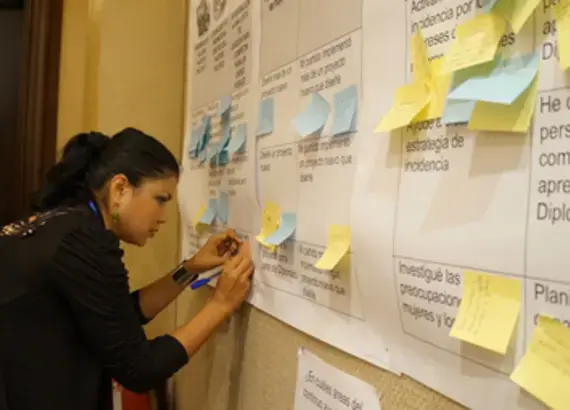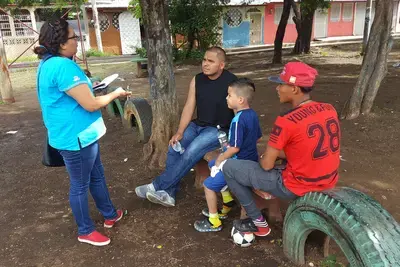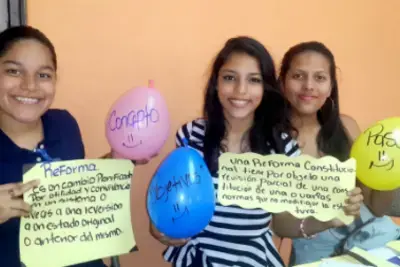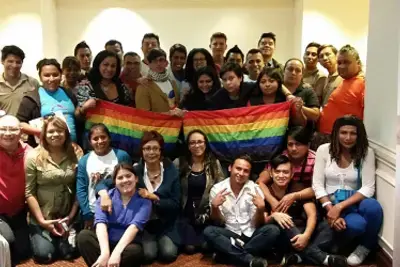
Success Story
Nicaragua Leadership Academy Reunion Connects Young Leaders
Their names are scattered across a map of Nicaragua.
Jaime Peters Flores is vice president of the Municipal Council of Adolescents and Youth in the municipality of Puerto Cabezas-Bilwi.
Yohana Vanesa Ramírez García was appointed by her party, Partido Liberal Independiente (PLI), to be electoral department chair in Nueva Segovia, where she is working toward restructuring the party.
Victor Lenin Tobias is a member of the Sandinista National Liberation Front’s (FSLN) municipal training team in the department of Masaya.
They are among 150 youth activists, political party members and civil society representatives from across Nicaragua who came together for the annual reunion of graduates of the Certificate on Leadership and Political Management (CLPM) program. The program is the joint initiative of a consortium of the American University of Managua (Universidad Americana, UAM), the University of the Nicaraguan Caribbean Coast Autonomous Regions (Universidad de las Regiones Autónomas de la Costa Caribe Nicaragüense, URACCAN) and the Institute for Development and Democracy (Instituto para el Desarrollo y la Democracia, IPADE), with support from the George Washington University Graduate School of Political Management (GSPM) and NDI. In its fourth year, CLPM is a training program aimed at equipping Nicaraguan young with skills and knowledge to govern effectively and become community leaders.
This year’s reunion marked the official launch of RedEs (Network of Graduates, Red de Egresados y Egresadas), a network designed to bring the program’s 1,300-plus graduates together to network informally, communicate with each other via CLPM social media and receive follow-on support from NDI and its partners to help them design and carry out advocacy and political projects.
The network’s first activity is United Voices (Unamos Voces), an initiative that brought together five municipal groups made up of members from political parties and civil society. Participants were trained to develop and administer questionnaires to poll youth in their communities about issues affecting quality of life. With the information, the groups are starting community initiatives on issues important to their municipalities, ranging from security to garbage collection to rural clean water.
During the RedEs launch, alumni networked with graduates from different years. At booths set up at the event, participants could make recordings to share with other attendees describing what they were doing with their new skills, and create a profile and map their location so they could find other activists in their area. They also could share their aspirations for the Nicaragua they want to build on pieces of colored paper that were posted for others to see. “I want a Nicaragua where all children have access to quality education,” wrote one graduate.
 Participants enter their information on a Google map to stay connected to fellow graduates.
Participants enter their information on a Google map to stay connected to fellow graduates. Participants were able to sign up for United Voices and Movie Forum (Cine Foro), a RedEs initiative that uses movies to explore democratic values. Participants will be given a kit that includes a movie addressing democratic issues — Invictus, for example, which is set in South Africa after the dismantling of apartheid — with a series of questions to guide conversations about democracy and citizen activism. Graduates also heard from a group of Chilean youth who successfully organized their communities to save a nature reserve in the north of Chile.
The CLPM training program, which is funded by the U.S. Agency for International Development (USAID), takes place biannually in five locations across the country: Managua, the capital city; Leon on the Pacific coast; Matagalpa in the north; and Bilwi and Bluefields in the Caribbean coast regions, where most of the country’s indigenous and Afro-Caribbean citizens live.
Read more:
Published July 7, 2014



